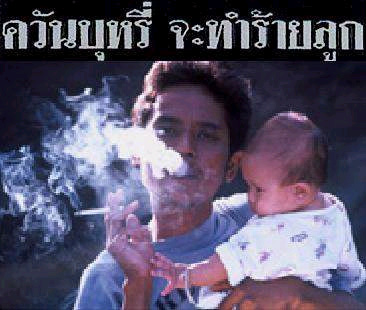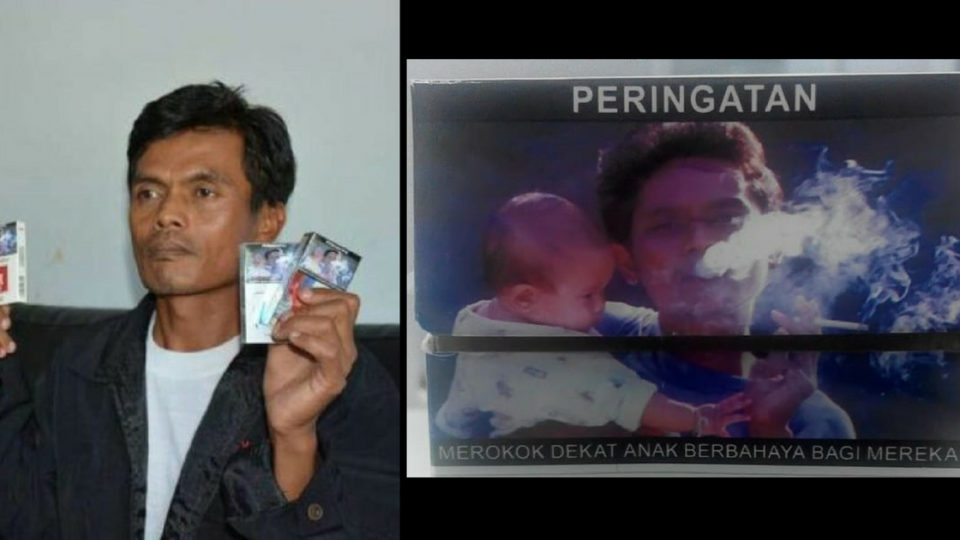An Indonesian man claimed that a secretive photographer took a picture of him smoking while holding his baby several years ago without his permission and said he was shocked to learn that it had been used as a warning label printed on millions of cigarette packages.
Six years after the warning labels were added to cigarettes in Indonesia, 42-year-old Dadang Mulya from Kuningan, West Java, went on a quest to get some recognition from the government, and while his story has made the national news, his hopes of getting any money from the illegal use of his face seems to have been dashed with the realization that he isn’t actually the man in the picture…
The would-be warning-label model came to the attention of the national media this week after acquiring a lawyer to seek legal action against the government for the use of his image.
Dadang said he had been complaining for years to other people in his village about the picture being used on the warning labels and not receiving any compensation for it. According to him, he finally took action last week after a friend of his told him he should lodge an official complaint with the village authorities (presumably after having to listen to the same rant for years). Dadang tried to do that but was then directed to the police, who then said he should bring it up with the Consumer Dispute Settlement Agency (BPSK).
On Monday, Dadang visited the BPSK office in Kuningan to question the use of his picture and ask for royalties. However, the BPSK officials told Dadang he should make a report with the police since it was not a consumer matter. Finally Dadang met with a lawyer, Dudung Hidayat, who he appointed as his legal counsel in the case.
However, just a few hours after he had signed a power of attorney document with Dudung yesterday morning, Dadang said he had changed his mind, revoked the letter and said he was no longer interested in taking legal action against the government.
“I do not understand the law, I do not understand anything about it. So at around 10 am I revoked the power of attorney letter,” Dadang said as quoted by Detik.
Dadang then said that he had actually only wanted to get recognition from the government and cigarette producers about the use of his picture, not restitution.
Why the sudden change of heart? It likely has to do with the fact that Dadang and his temporary lawyer learning that the photo he claimed was of himself in fact came from Thailand and was first used on cigarette warning labels there in 2005.

The Ministry of Health, which designed and administers regulations regarding the warning labels on cigarettes, also confirmed that they had full legal permission to use all of the photos used on their warning labels and that they had been taken from a database of similar images used in other countries.
We have to admit we feel a bit sorry for Dadang (despite the fact that he doesn’t seem to see any problem with smoking near his baby). He seemed to genuinely believe for years that he was the man in the photo (and TBF, the resemblance is striking) and that he deserved compensation. He also admitted to the media that as a day laborer that worked irregularly he had trouble meeting the economic needs of his family, including his four children.
But it’s also telling that Dadang never seemed embarrassed to claim that he was photographed smoking next to his baby. And why would he, since such sights are tragically common place in Indonesia, which has some of the highest smoking rates and most lax tobacco controls in the world. Not only that, government data has shown that cigarette expenditures is one of the main causes of poverty in the country.




